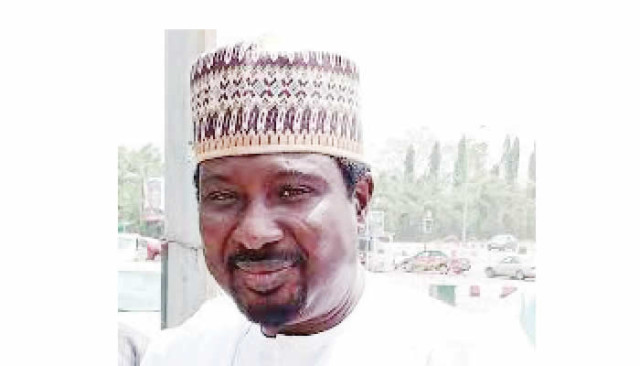In a significant step towards amending Nigeria's 1999 Constitution, the Deputy Senate President and Chairman of the Senate Committee reviewing the 1999 constitution, Jibrin Barawu announced on Saturday that the final draft of the constitutional review will be submitted to state Houses of Assembly for approval by the end of the year.
Speaking after a two-day public hearing in Lagos, Barawu, represented by Senate leader Michael Opeyemi Bamidele, highlighted key demands from Southwest residents, including the creation of new states, the establishment of state police, and reforms aimed at enhancing electoral integrity and gender representation in governance.
Emphasising the importance of public engagement in the constitutional process, Barawu reiterated that the ongoing review is not merely procedural but a vital opportunity for citizens to influence the foundational legal framework of the nation.
Barawu state that the final draft of the ongoing constitutional amendment would be forwarded to the state House of Assembly for approval by year-end.
Barawu emphasized that the public hearing should not be viewed as a mere ceremony but rather as a fundamental constitutional obligation that allows the populace to have a voice in shaping the governing document.
He added that this ongoing constitutional review should not be seen as a formality; instead, it aims to lead to significant changes that will enhance governance and fortify democracy in the nation.
He highlighted accomplishments from previous constitutional amendments made by the 9th National Assembly and state Houses of Assembly, such as the transfer of some previously exclusive issues to the concurrent list for state governance.
He remarked that the benefits of past amendments can be seen in recent electoral reforms that have begun to make electoral processes more credible.
Barawu stated, “Our goal over these two days has been to empower Nigerians to participate in the constitutional process, preventing their representatives in Abuja from unilaterally altering the constitution.”
He noted the challenges laid out by the original framers of the constitution, designed to protect it from arbitrary changes, and emphasized that even after the National Assembly completes its work, two-thirds of state Houses of Assembly must support any amendments for them to be valid.
He continued, stressing the importance of ensuring that the constitution, which serves as the nation's foundational legal framework, is amended only with the widespread agreement of the Nigerian populace.
He highlighted the commitment to address concerns raised by various groups, including youths, women, traditional leaders, professionals, and others, with the aim of enhancing good governance and creating a better Nigeria.
Barawu assured that a final proposal would be presented to the State Houses of Assembly before the year concludes.
He urged stakeholders advocating constitutional changes to engage with elected representatives to maintain collaboration and avoid conflict.
In a show of unity, the Southwest Conference of Speakers from various State Legislatures expressed support for all regional requests and pledged to work alongside national assembly members on the constitutional amendment.
Ogun State House of Assembly Speaker Daisi Elemide affirmed their commitment to legislative autonomy, emphasizing the need for governors to allow the legislature the autonomy defined within the constitution.
He also expressed support for local government autonomy and the establishment of state police, arguing that these measures are crucial for tackling current security issues.
Elemide advocated for the inclusion of roles for traditional rulers in the constitution, emphasizing their historical significance and the need to restore these roles.
He expressed solidarity with women’s aspirations, committing to the “He for She” initiative.
Agness Funmi Sesse, Chairperson of the Nigeria Labour Congress in Lagos, voiced concerns about proposals to move labor issues from the exclusive to the concurrent list, stating that this would weaken workers' rights and lead to further exploitation by state governments.
She warned that such a change would allow states to bypass compliance with national labor laws, threatening workers' rights and protections.
Speaking for the Nigerian Bar Association, Dr. Babatunde Olatunji, SAN, called for a comprehensive overhaul of the judicial appointment process to establish stricter criteria for appointing judges, arguing that the current lax standards are vulnerable to manipulation.
Olatunji stressed that without a proper appointment process, the judiciary will struggle to meet public expectations.
Other suggestions included the creation of Oke Ogun State from Oyo with Agunrege as its capital, and the establishment of a New Oyo State with Ogbomosho as the capital, as presented by various stakeholders, including youth and women.




















